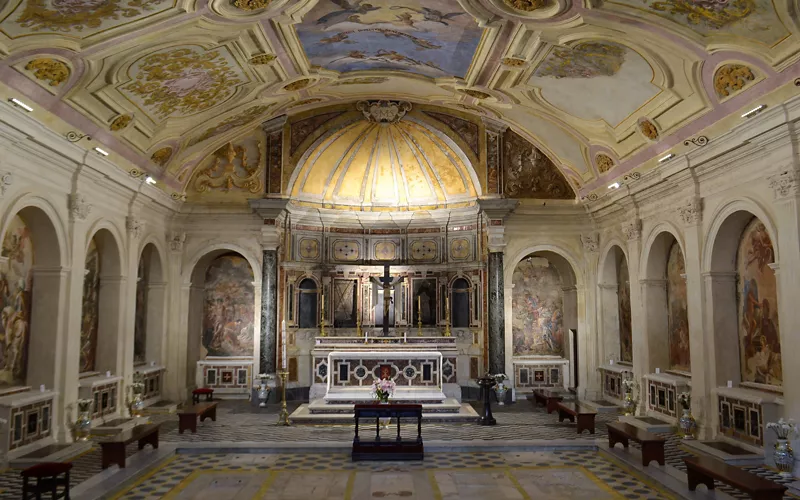This content was automatically translated. View the original text.

Overview
The catacombs of San Gaudioso and San Severo, protecting the secrets of Naples
Less extensive and with less treasures than those of San Gennaro, the Catacombs of San Gaudioso and San Severo are two important examples of Christian necropolises hidden in the bowels of the Sanità district, some of which still unexplored.
As an important destination for retracing the art and history of Naples' early Christian communities, they are both part of more articulated, diffuse architecture and are a striking example of how the city's underground is, for all intents and purposes, a city beneath the city.
Originally excavated by Greek settlers to extract tuff, the dolce Neapolitan stone used to build houses and temples and later recovered by the Romans, these catacombs became a place of refuge and prayer for the first Christians during persecution.
The catacombs of San Gaudioso and the discovery of Madonna della Sanità
The Catacombs of San Gaudioso, the second most important early Christian cemetery after that of San Gennaro, can be accessed from Santa Maria della Sanità, a basilica with Baroque architecture and important place of worship in the district. More precisely, it can be reached from the crypt below its high altar: it’s hard to establish the size and number of compartments due to the various transformations the place has undergone over the centuries.
In addition to the remains of Saint Gaudioso, an African bishop condemned to death by Vandal king Genseric because he refused to convert to Arianism, the catacombs hold frescoes and mosaics from the fifth and sixth centuries and more recent noble burials. A fresco depicting Mary was found here in the 16th century, which until then had remained buried in the mud: it is the Madonna della Sanità, presumably the oldest Marian depiction in Campania, dating back to the 5th or 6th century.
The catacomb of San Severo, spiritual guide of the early Christians
Near the Basilica of Santa Maria della Sanità, you can walk to the basilica of San Severo outside the walls, under which the catacomb of San Severo is located, dating back to the fifth century AD and was only discovered in 1867. Unfortunately, only a cubiculum, or small room, remains of the original structure carved into the tuff.
However, three arcosolia, the classic arched tombs of the catacombs, are still visible, with two partially intact. The catacomb is linked to the memory of San Severo, the eleventh bishop of Naples, who in the 4th century AD, a time of bitter persecution, played an important role as spiritual leader of the Neapolitan Christians and personally designated this place for his own burial.
The Sacred Mile for exploring the Sanità district’s treasures
The basilicas of Santa Maria della Sanità and San Severo outside the walls, with their archaic underground treasures, are key stops on the so-called Sacred Mile itinerary for exploring the treasures and monuments of the Sanità district, winding among historic palazzi, churches, catacombs, workshops, legends and mysteries, to discover one of the most authentic facets of the history of Naples and its inhabitants.
The path is part of a project to enhance the neighbourhood animated by the youth of La Paranza Cooperative, which has been contributing to the relaunch of the city's image through the rediscovery of its artistic and cultural heritage since 2006.
Every Saturday, Sunday and public holidays, the association's guides accompany guests along all its stops, from the Catacombs of San Gennaro at the Basilica del Buon Consiglio, to the gate of San Gennaro, passing by iconic sites such as the Fontanelle cemetery, Palazzo San Felice and Palazzo Spagnuolo, often confused with each other due to their similar and scenic staircases and niche theories, and often used as film sets.
Basilica Santa Maria della, Piazza Sanità, 14, 80136 Napoli NA, Italia